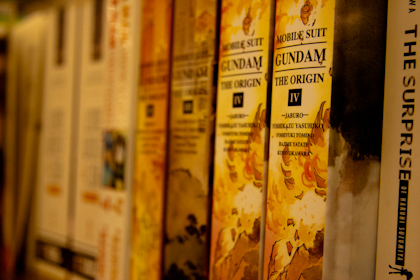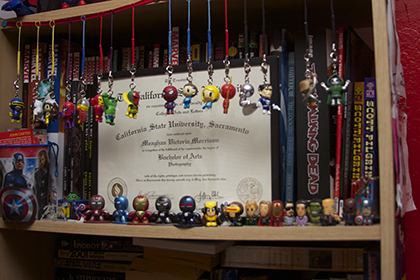I like to think of myself as a professional Internet user. Though I’ve never seen a dime for all the hours I’ve put in online, I reap the riches of the content I read, watch, and listen to. By seeking out cool new things on the internet, I not only get to appreciate the creative content, but also a community of fans all over the world—which, I would argue, is half the experience.
Most people have a “thing” that they find joy in participating in and talking about, such as exercising, movies, gardening, bagpipe-playing or One Direction. There are some who believe that if fewer people know about their “thing,” whether it’s a show, a band, or a super new and awesome gardening technique, the “thing” is inevitably cooler. We all know these people: “Do you have their concert shirt from their 1998 secret show in Chicago? ‘Cause if not, we can’t be friends.”
Though I do agree that a smaller number of super devoted fans is better than a larger number of casual fans, in general, if more people know about the “thing,” more knowledge, and art, and community can be shared across the internet. And more people who are interested in the “thing” will be able to find one another.
My “thing” is Doctor Who. I was just finishing up middle school when Russell T. Davies rebooted the classic British sci-fi dramedy, and it wasn’t until much later that I discovered the show and immersed myself in its fandom. I had heard about Doctor Who from a number of the Internet personalities I followed, and in my first year of college, I began actively seeking out the show, its surrounding culture, and its fandom. Back then, these episodes weren’t easy to find for free but I had a lot of gift card money to spend, so I splurged and guaranteed myself a high-def experience by buying all the seasons on iTunes.
I zipped through those episodes—meaning I watched five seasons of television in about two months. Doctor Who was, and is, a show about how big the universe is and yet, despite its vastness, there are shared experiences to which we can all relate. The big giant blockbuster storylines usually have smaller messages about what love and hope can do, and the supernatural aspects of the show help to highlight real-world experiences. As Ben Wyatt from Parks and Rec would say, “They’re telling human stories in a fantasy world!”
I became obsessed, very fast. But no one I knew watched Doctor Who and I am not one to seek out other people to talk to online, simply because a lot of my experiences with books or TV shows become very personal and I find it hard to express my feelings to other people. I started following blogs and found the website Tumblr, which helped me find other projects the actors and creators were working on. I found people online who loved it just as much as I did and they introduced me to other awesome things like fan art and fanfics, neither of which I had ever really encountered in such massive quantities before. I had, of course, encountered both of these things with Harry Potter, but I thought that was the only fandom where people were as passionate about something as I was.
By discovering that other fandoms also expressed their love for a show or a book through art and writing, I discovered a whole new world (Aladdin reference for you, there). It is a world where enthusiastic people come together to express their love for their passion, and a place where I can openly indulge in my enthusiasm as well. I was a much quieter, much more timid person before I found my tribe, but afterwards I found the confidence to become much more dynamic, both on the Internet and in real life.
Getting into Doctor Who started a chain reaction that eventually led me to the nerd life that I embrace today. I encouraged many of my friends to watch Doctor Who and I found other shows like Merlin, Supernatural, and others—all of which have been fantastic new experiences and new fandoms. The small network of Who fans (known as “Whovians”) whom I followed eventually expanded and led me to binge-watching a whole host of other shows, as well as discovering all sorts of new bands, books, and podcasts.
I became immersed for the first time in something solely because of the recommendations of Internet personalities, not because I had found it and loved it first. It was a whole new and wonderful experience that spoke to the power of online sharing. It might be nice to be an “original” or early fan of something, but I’m so glad other people spread the word about Doctor Who and recommended it to me. If they hadn’t, I may never have experienced it or the various other new works that it introduced me to. Doctor Who opened up an entirely new network to me that I had only really experienced once before, and because of that it will always hold a special place in my heart.
My favorite quote is when the Doctor tells Amy Pond about why companions come with him on the TARDIS. He says, “You make all of time and space your backyard, and what do you have? A backyard! But you, you can see it. And when you see it, I see it.” By showing your passion for something, it can make other people see that same passion and appreciate it all the more.

Photo by Rob Adams
